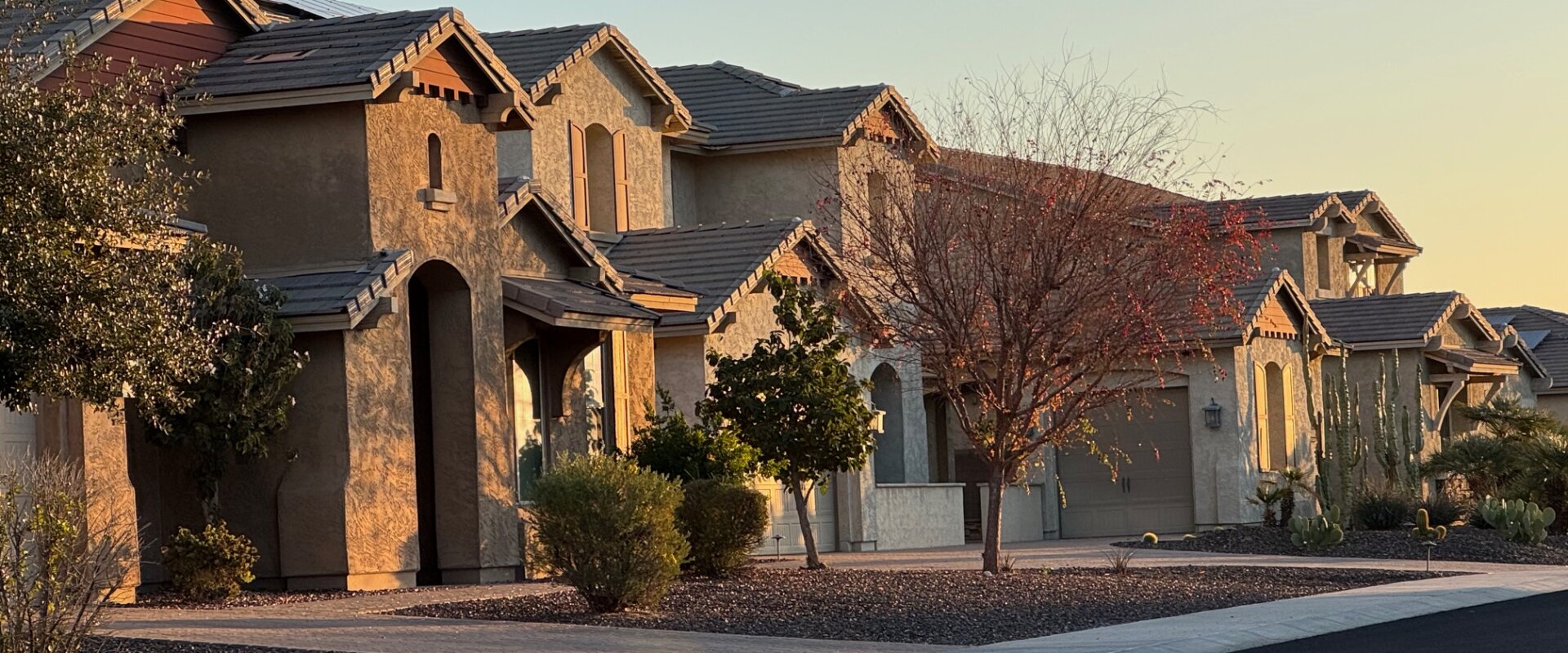
Inheriting a house can feel like a stroke of luck. It’s crucial to stay alert to the hidden expenses that may come your way. It’s normal to experience a mix of emotions, from dealing with sorrow and financial burdens to family conflicts and unforeseen hurdles. When you receive a property as an inheritance, having an understanding of costs is critical to making well-informed choices. Let’s delve into some of the commitments you might encounter when inheriting a property in Phoenix so you can manage the process smoothly.
Tax Responsibilities
Once the house is in your name, handling property taxes becomes your duty. The amount can vary significantly depending on where the property is located, impacting your expenses considerably. You could also be responsible for estate taxes if they are not covered by the estate and potentially capital gains taxes in scenarios. Moreover, certain states have an inheritance tax in place. Planning ahead for these taxes is vital to prevent any surprises.
Property Taxes; Property tax rates differ widely based on factors such as the property location, assessed value, and local tax regulations. Inheriting a home means taking on its tax obligations well. Understanding how local taxes work and preparing for payments is essential to avoid penalties or encumbrances.
Estate Taxes: Estate taxes are imposed on the value of the person’s estate before it is distributed among beneficiaries.
The inheritor might bear the burden if the estate lacks funds to cover these taxes. Federal estate tax rates could be substantial, and certain states may impose estate taxes.
Capital Gains Taxes: Should you decide to sell the inherited property, you could face capital gains taxes on the difference between the selling price and the property’s stepped-up basis (its market value at the time of inheritance). Being aware of these taxes can assist you in making informed choices regarding whether to sell or retain ownership of the property.
State Inheritance Taxes: Some states enforce inheritance taxes in addition to estate taxes. This tax is paid by the beneficiary who receives the inheritance. The beneficiary’s tax rate may vary depending on their relationship to the deceased and the value of what they inherit.
Utility Bills
Even if no one resides in the house, it’s necessary to maintain utility services. Costs for water, electricity, and other utilities can swiftly contribute to your obligations. Many individuals who inherit homes in Phoenix often opt for a sale due to this expense. Keeping up with a house can be financially taxing, prompting a sale as a practical remedy.
Gas; Ensuring an environment and checking the safety features are functioning correctly involves keeping the electricity and gas running. Even if you use heating and cooling systems sparingly, they can still contribute to utility bills.
Water and Sewer; It’s essential to keep the water flowing to prevent issues such as freezing pipes or landscaping damage. While less expensive, sewer services are still an expense that adds to the property costs.
Trash and Recycling: Waste management services are crucial for unoccupied properties. Regular trash and recycling collections help maintain the property’s appearance and prevent it from becoming a target for pests.
Internet and Security Systems; If you want to monitor your property, maintaining internet service for security systems may come with a cost. Security systems deter occupants and safeguard your home from vandalism or burglaries.
Maintenance and Repair Costs
Every home needs maintenance and occasional repairs. Properties with lawns, pools, or gardens require care. Whether you handle these tasks yourself or hire help, upkeep involves time and money. If neglected, inherited homes might need repairs. Budgeting for routine maintenance, such as lawn care and cleaning, is essential in this condition.
Maintenance: It is essential to keep up with tasks like cutting the grass, cleaning the gutters, and managing pests to ensure your property stays in good shape. Ignoring these responsibilities could lead to problems in the future.
Significant Fixes; Older homes or ones that haven’t been maintained well might require repairs such as replacing the roof, updating plumbing and electrical systems, or fixing HVAC issues. While these repairs can be costly, they are essential to preserving the value and safety of your property.
Aesthetic Improvements; Adding a coat of paint, installing flooring, or upgrading fixtures can significantly enhance the attractiveness of your property. These updates may be necessary if you plan to sell your home, as they can help draw in buyers and justify a selling price.
Urgent Repairs: Unexpected leaks, damaged windows, or structural problems can occur at any time. A budget for emergency repairs must be set aside to address these issues promptly and prevent damage.
Settlement Costs
Inheriting a property can sometimes lead to family conflicts among heirs. In some cases, you may incur mediation expenses to resolve disputes. Opting for a sale often proves to be the way to settle disagreements, enabling you to divide the proceeds without lengthy negotiations.
Quick Cash Phoenix Homes can assist in expediting an equitable sale, often concluding within days, potentially averting the necessity for mediation or legal actions.
Financial Burden; Engaging in mediation or legal proceedings to settle inheritance disagreements can incur costs. Attorney fees, court expenses, and mediation charges accumulate rapidly, depleting your reserves.
Emotional Stress; from implications, family conflicts arising from inherited assets can result in significant emotional strain. Mediation offers a means to amicably address disputes, safeguarding bonds while reaching a resolution.
Time Constraints: Resolving disputes can consume time, impeding your ability to promptly utilize or sell the property. Swift resolutions through mediation or sale can save time and alleviate Stress.
Managing Problematic Tenants
In cases where the inherited property is tenanted, you may also inherit the tenants themselves. Handling tenants can pose a challenge. Evicting tenants involves costly procedures that necessitate legal intervention. Ensuring the property is unoccupied and market-ready may introduce delays and costs.
Eviction Expenses: The eviction process entails fees, court expenditures, and potential income loss. It tends to be protracted, requiring you to navigate protocols while potentially encountering resistance from tenants.
Dealing with property damage caused by tenants can require cleaning and repairs to restore the property to a livable or market-ready condition.
During eviction processes or repair work, you risk losing income, which could impact your stability. Addressing tenant issues is crucial to minimizing any setbacks.
Implementing tenant screening procedures when renting out the property is key to preventing problems. This process includes conducting background checks, credit assessments, and verifying references.
Getting the Home in Sellable Condition
Preparing a house for sale may involve bringing it up to market standards through upgrades ranging from minor cosmetic touch-ups to significant renovations. These enhancements are vital for attracting buyers and receiving offers.
Simple changes, like applying paint, installing carpets, or updating fixtures, can greatly enhance the property’s appeal and justify a higher selling price. In some instances, extensive renovations might be required to improve the condition of the home.
Renovating kitchens and bathrooms, updating systems, or enhancing the appeal of a property can come with a hefty price tag but often result in a higher return on investment.
Preparing the home for staging to highlight its potential can attract buyers. While professional staging services may be costly, they are usually an investment that can speed up the selling process.
It is crucial to ensure that the property passes all inspections and certifications. This might involve expenses for pest checks, energy certifications, or safety compliance.
When a buyer is found, the property must undergo a home inspection to ensure it meets all required standards. Any issues discovered during this process must be dealt with to avoid any deal-breakers.
Conducting a pre-inspection before listing the property can help identify and address problems. This proactive approach can prevent surprises during the buyer’s inspection.
Plumbing leaks, electrical faults, and structural issues are common issues uncovered during inspections. While fixing these problems may be expensive, it is essential to ensure a sale.
Taking care of inspection-related matters in advance can give you bargaining power during negotiations.
Buyers are less likely to ask for discounts or special deals if the house is in shape.
Certification and Documentation: Presenting paperwork for repairs and certifications can comfort buyers and speed up the selling process. It is also important to keep records of all work completed.
Ensuring the Home Appraises at its Value
Finding a buyer is one step in the process. To finalize the deal, the house must be appraised at the selling price. If the appraisal value is lower than expected, you might have to adjust your price or make further enhancements to meet that value. This could lead to added time and expenses during the sale.
Understanding Appraisals: An appraisal provides an estimate of a property’s value carried out by an appraiser. Location, condition, size, and recent sales are factors considered by appraisers.
Boosting Appraisal Value: Improving the property’s condition, modernizing outdated features, and ensuring all systems work well can positively boost its appraisal value. Even minor upgrades can make an impact.
Market Analysis: Knowledge about the market and comparable sales helps in setting expectations for an appraisal. Pricing your home competitively can prevent complications during this process.
Negotiating Tactics: If the appraisal value falls short, a plan is essential. Selling an inherited property may involve discussions, with the buyer offering concessions or making improvements.
How Quick Cash Phoenix Homes Can Assist
Are you seeking guidance on inheriting a property in Phoenix? Reach out to Quick Cash Phoenix Homes for information and assistance. We understand this can be a time, and we approach each case with empathy and support. Our aim is to provide information without pressuring you into any decisions. We strive to make the process seamless whether you’re considering a sale or exploring options.
Sell Your Property to Minimize Expenses
Deciding to sell an inherited house comes with expenses such as real estate agent fees, closing costs, and possible repairs or upgrades to enhance its market value. These costs can add up rapidly, so it’s crucial to have a clear understanding of what selling will entail. Choosing a sale to Quick Cash Phoenix Homes can help eliminate many of these selling expenses.
How Quick Cash Phoenix Homes Can Provide Assistance
Inheriting a property in Phoenix may bring burdens. Specializing in handling properties, Quick Cash Phoenix Homes makes the process simple and stress-free. Selling directly to Quick Cash Phoenix Homes enables you to sell quickly without facing costs or hassles, allowing you to maximize your inheritance.
Contact us today to find out how we can help you with the property you’ve inherited in Phoenix. Call (623) 294-9538 for details.

